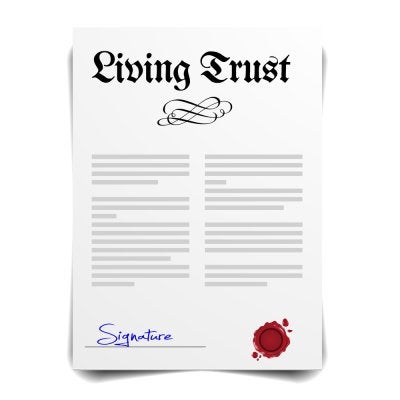-
A Quick Look at Living Trusts
An estate planning attorney in The Woodlands can help you determine if a living trust is right for your needs. A living trust is an arrangement that holds assets you choose to transfer into it. Unlike a last will and testament, a living trust goes into effect during your lifetime and may continue well after your death. Many people choose to create living trusts because they allow assets to be distributed to heirs without going through probate. Such an arrangement may be more of convenience and, unlike wills that go through probate, a living trust is not usually open to the public. Nevertheless, one should never use a trust in place of a will. They work together to protect your interests.
Watch this featured video for a basic introduction to living trusts. This professional explains that, although a living trust cannot serve as a substitute for a will, it can be an important tool for a comprehensive estate plan. You may choose to designate a trustee to manage the living trust during your lifetime or you may prefer to retain control.
-
What Is a Living Trust?
As a lawyer who handles estate planning and wills in the Woodlands can explain, a living trust is a written document that any property owner can create during his or her lifetime. Just like a will, a living trust is usually created by a will attorney and spells out your exact wishes regarding your assets, your dependents, and your heirs.
The difference between wills and living trusts is that wills only become effective after you die and your estate has entered into probate. A living trust can be beneficial where it is advisable to bypass the probate process. In such an event, your named trustee can carry out your instructions regarding your property after you die. Where you are unable to manage your financial, healthcare, and legal affairs due to illness or incapacity, then your trustee may also be given control over such matters.
For a lawyer who handles wills and estate planning and can help you establish a trust, contact Andrew J. Bolton, Esq. of Spring, TX. Our experienced attorneys have years of experience handling wills and trusts. You can reach us at (936) 435-1908.

-
Reasons to Create a Trust
Many people erroneously believe that trusts are only for the very wealthy, but wills and trusts are often established in the Woodlands to simply to help manage property and assets . To create a trust, a lawyer will create a legal document holding property or assets for a specific person, known as the beneficiary. Your lawyer will also name a trustee who controls the trust, which is generally a trusted family member, friend, or attorney. Continue reading to find out why trusts can help you manage your assets’ distribution, ensure your wishes are protected, and save your family time and money.
Manage Assets

An attorney may recommend a trust for individuals who want to manage and distribute their assets in a very specific way. With a trust, a grantor can detail exactly how the estate will be distributed with much greater precision than a will allows. For beneficiaries who cannot be relied upon to make their own sound financial decisions, a trust permits the grantor to distribute funds in small, periodic amounts, free from the grasp of creditors.Ensure Execution
A trust is more difficult to contest than a will, which means your exact wishes will likely be executed without resort to costly litigation. A will is comparatively open to challenge from anyone who is displeased with the distribution of assets. This is not to say that wills are inferior; they are not. As every person with a trust should also have a will, just in case. A trust can be challenged only if the complainant argues that the person was mentally incapacitated when the trust was established and did not understand the implications. A complainant may also argue that the grantor was unduly influenced by another person and did not create the trust of his or her own free volition.Save Resources
Many people contact an attorney to create a trust so their survivors can avoid probate court later on. Whenever assets are distributed according to a will, a probate judge is required to determine the will’s validity. This process requires assistance from a skilled probate attorney. By creating a living trust, you enable your descendants to bypass this process so they can access estate property more quickly. Although more costly up front, a trust also helps your family avoid the fees charged by a probate court. -
Do You Need to Set Up a Trust?
If you wish to make financial arrangements for your children, grandchildren, or other heirs, it’s a good idea to speak with a lawyer about estate planning , including the possibility of establishing a trust. An attorney in Conroe, TX, can help you explore the various aspects of a trust and how to structure your trust to accomplish your goals. For example, you could use the trust to leave a certain amount of money to your child, which could be distributed in set amounts at certain intervals. This arrangement prevents your child from spending his or her inheritance all at once. Or, you can place conditions on your child’s inheritance. For example, you can have your lawyer set up the trust to distribute small amounts of money over time and to only allow your child to receive the rest after he or she graduates from college.
Another reason why you might ask your attorney to establish a trust is for tax advantages. Life insurance policies provide tax-free benefits to your beneficiaries. However, the death benefit amount may be added back into the estate, which may make it [the estate] subject to federal estate taxes. Establishing an irrevocable life insurance trust protects the full death benefit for your beneficiaries.

RECENT POSTS
categories
- Uncategorized
- Estate Planning
- Probate
- Family Law
- Drafting a Will
- Divorce Lawyer
- Texas Family Law
- Divorce
- Real Estate
- Probate Court
- Child Custody
- Andrew J. Bolton
- Esq.
- Adoption
- Law Office of Andrew J. Bolton
- Wills
- Executor
- Infographic
- Guardianship
- Trusts
- Contested Divorce
- Child Support
- Attorney
- Living Wills
- Contested Will
- Prenuptial
- Probate Bond
- Heir Apparent
- Legacy Contact
- Living Trusts
- legal guardian
- Legal Disputes
- property rules
- Common Law
- Stocks
- Estate Tax
